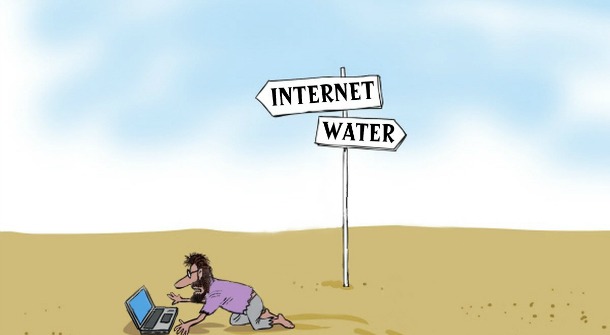GM crops are acknowledged to be bad for people’s wellbeing. These GM products are present in food that people eat and impact their health.
Bharat Dogra is a senior journalist who has been involved with several social movements and initiatives – based in New Delhi.
Genetically modified (GM) crops have been extremely controversial since their advent. Several reputed scientists have warned against their high risks and hazards. Ignoring the vast and serious evidence against them, powerful interests have been very active at high levels in India to get acceptance for fast spread of GM technology. In this context it is important to summarize the evidence against GM crops.

An eminent group of scientists from various countries who constitute the Independent Science Panel have said in their conclusion after examining all aspects of GM crops – “GM crops have failed to deliver the promised benefits and are posing escalating problems on the farm. Transgenic contamination is now widely acknowledged to be unavoidable, and hence there can be no co-existence of GM and non-GM agriculture. Most important of all, GM crops have not been proven safe. On the contrary, sufficient evidence has emerged to raise serious safety concerns, that if ignored could result in irreversible damage to health and the environment. GM crops should be firmly rejected now.“
In 2009-10, when Bt brinjal debate had peaked17 distinguished scientists from Europe, USA, Canada and New Zealand wrote to the Prime Minister of India warning against “the unique risks (of GM crops) to food security, farming systems and bio-safety impacts which are ultimately irreversible.” This letter adds, “The GM transformation process is highly mutagenic leading to disruptions to host plant genetic structure and function, which in turn leads to disturbances in the biochemistry of the plant. This can lead to novel toxin and allergen production as well as reduced/altered nutrition quality.”
“…The basic problem is that GM as employed in agriculture is conceptually flawed, crude, imprecise and poorly controlled technology, that is incapable of generating plants that contain the required multiple, co-ordinately regulated genes that work in an integrated way to respond to environmental challenges.
“…GM has not increased yield potential. Yields from GM crops to date have been no better and in the case of GM soya have been consistently lower.
“…GM crops have led to vast increases in pesticide use, not decreases and therefore reduction of agricultural pollution cannot be claimed
“…Climate change brings sudden, extreme, and unpredictable changes in weather, which requires that a cropping system be flexible, resilient and as genetically diverse as possible. GM technology offers just the opposite.
“…Stability of productivity and production is much lower with many of the GM crops commercialized today. Herbicide tolerant GM soya is far more sensitive to heat or drought stress than conventional soya.
“…GM crops are designed to be used in conjunction with synthetic pesticides and fertilizers, which are manufactured from oil and natural gas.
“GM crops do not reduce greenhouse gas emissions.
“Recent data from the US department of agriculture has shown a vast increase in herbicide use since the introduction of GM crops tolerant to the application of these agrochemicals.
“Therefore, the introduction of GM crops has exacerbated rather than reduced agriculture’s carbon footprint and is clearly unsustainable.
“Alternative proven technologies that can reduce the amount of fossil fuel used in farming already exist. This includes methods for reducing fertilizer applications, selecting farm machinery appropriate for each task, managing soil for conservation, limiting irrigation and (using) agro-ecological farming techniques.”
Several scientists involved in studying the implications and impacts of genetic engineering got together at the International Conference on ‘Redefining of Life Sciences’ organised at Penang, Malaysia, by the Third World Network. They issued a statement (the Penang Statement) which questioned the scientific basis of genetic engineering. This statement said :
The new biotechnology based upon genetic engineering makes the assumption that each specific feature of an organism is encoded in one or a few specific, stable genes, so that the transfer of these genes results in the transfer of a discrete feature. This extreme form of genetic reductionism has already been rejected by the majority of biologists and many other members of the intellectual community because it fails to take into account the complex interactions between genes and their cellular, extracellular and external environments that are involved in the development of all traits.
“It has thus been impossible to predict the consequences of transferring a gene from one type of organism to another in a significant number of cases. The limited ability to transfer identifiable molecular characteristics between organisms through genetic engineering does not constitute the demonstration of any comprehensive or reliable system for predicting all the significant effects of transposing genes.”
“Some GEOs (Genetically Engineered Organisms) have been made with virus or transposon vectors that have been artificially enhanced to become less species-specific. Since viruses and transposons can cause or induce mutations, there is the concern that enhanced vectors could be carcinogenic to humans, domestic animals and wild animals. “Persons with allergies may have legitimate concerns that with genetic engineering, once-familiar foods may be made allergenic.
Furthermore, they will not be able to protect themselves if the foods are not labeled to state that they have been produced from genetically engineered organisms. Allergenic effects could be carried with the transgene or be stimulated by imbalances in the chemistry of the host plant or organism. “Another problem is that field workers or neighbors may develop allergies to insecticidal transgenic crops. For example, a spider venom expressed in sugarcane might block a metabolic pathway only in insects and not in humans, but humans can nevertheless develop serious allergies to some venoms. “With genetic engineering, familiar foods could become metabolically dangerous or even toxic. Even if the transgene itself is not dangerous or toxic, it could upset complex biochemical network and create new bioactive compounds or change the concentrations of those normally present.
In addition, the properties in proteins may change in a new chemical environment because they may fold in new ways. “Many more opinions of environment scientists and groups of scientists can be quoted to make a strong case regarding the very serious hazards and risks of GM crops. As India’s top-most expert on this subject the late Dr. Pushpa M. Bhargava pointed out, those who have favored GM crops have been generally found to have close contacts with GM promoting economic and corporate interests. Hence it should be clear that the scientific evidence is clearly against GM corps.
***














